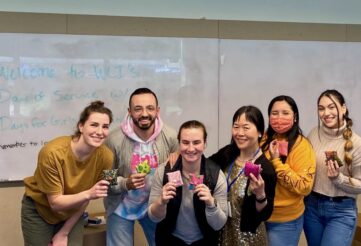Ensuring Menstrual Product Availability: Reproductive Health Supplies Coalition General Membership Meeting 2023
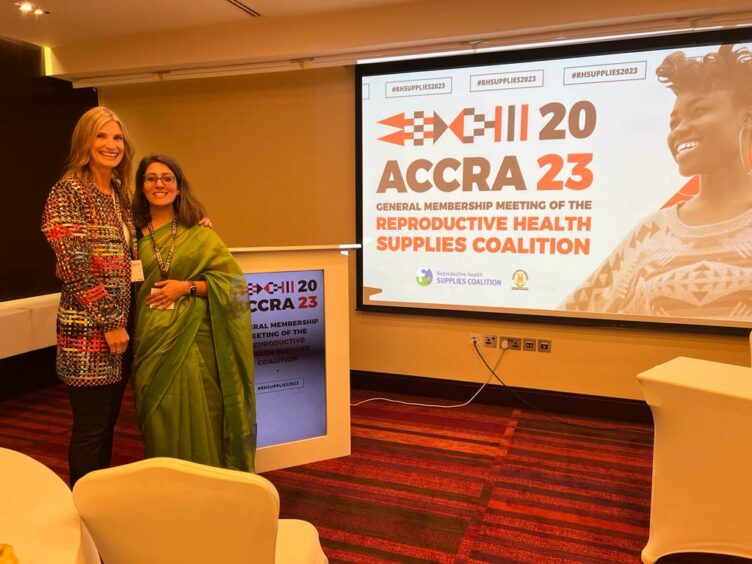
On October 20, Days for Girls (DfG) and its partners presented Practical Approaches to Menstrual Product Resilience in Supply Constrained Settings at the 2023 General Membership Meeting of the Reproductive Health Supplies Coalition (RHSC) in Accra, Ghana. In partnership with The Pad Project, PSI Europe, and Total Family Health Organization, this presentation spotlighted the importance of finding sustainable solutions to supply chain challenges facing menstrual product accessibility.
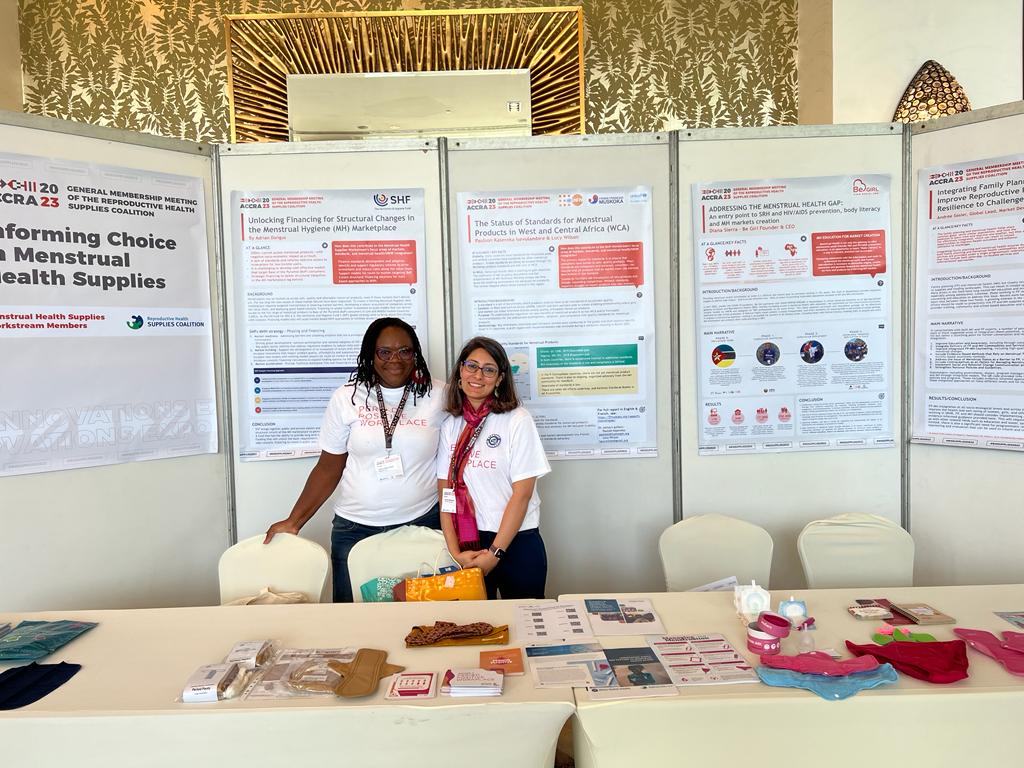
About the RHSC
The RHSC is a global collective of public, private and non-governmental organizations committed to providing low- and middle-income countries with access to affordable, quality reproductive health products. RHSC is composed of diverse member organizations from around the world, including DfG, who are dedicated to promoting reproductive health.
The 20th General Membership Meeting reflected on the COVID-19 pandemic’s impact on the global economy, market flow, production interruptions and the movement of reproductive health supplies. Throughout the five-day event, RHSC members put forward innovative ideas for improving the quality and accessibility of reproductive health resources.
DfG’s Presentation
At the conference, DfG, along with other partners, presented on how pandemic-related supply chain disruptions exacerbated barriers to menstrual product accessibility in low- and middle-income countries. Globally, an estimated 500 million women, girls and people who menstruate lack access to menstrual products and adequate facilities for menstrual health management. Moreover, an estimated 200 million people who menstruate in low-income countries suffer from lack of access to adequate products.
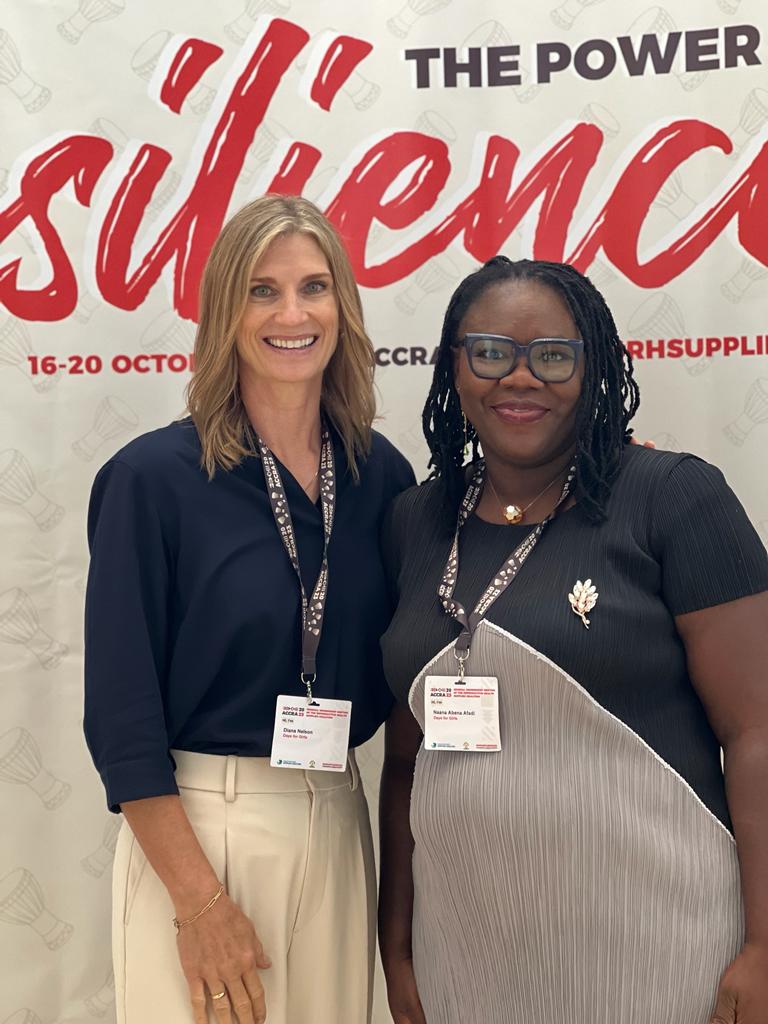
The COVID-19 pandemic caused sudden and abrupt restrictions on the movement of goods and services, including menstrual products, particularly in low- and middle-income countries. In a survey conducted across Asia Pacific, Africa, Latin America, Europe and North America, 73% of people who menstruate were reportedly concerned about restricted menstrual product access due to supply chain disruptions and shortages.
In some countries, pad distribution was overlooked almost entirely during the pandemic, causing dire physical and mental health outcomes for those who menstruate. These outcomes ranged from infections and menstruation interruptions to low self-esteem and loss of self-agency.
What is important to acknowledge is that most of these challenges existed before the pandemic and persist today, even after most pandemic restrictions have been lifted. However, restrictions during the pandemic exacerbated these challenges and illuminated the importance of building resilient supply chains as the world adjusts out of the pandemic and into a new normal.
Proposed Solution: Locally-Led Production
DfG proposed to RHSC an alternative production model for menstrual health supplies and a possible solution to supply chain interruptions: a hyper-local decentralized production model.
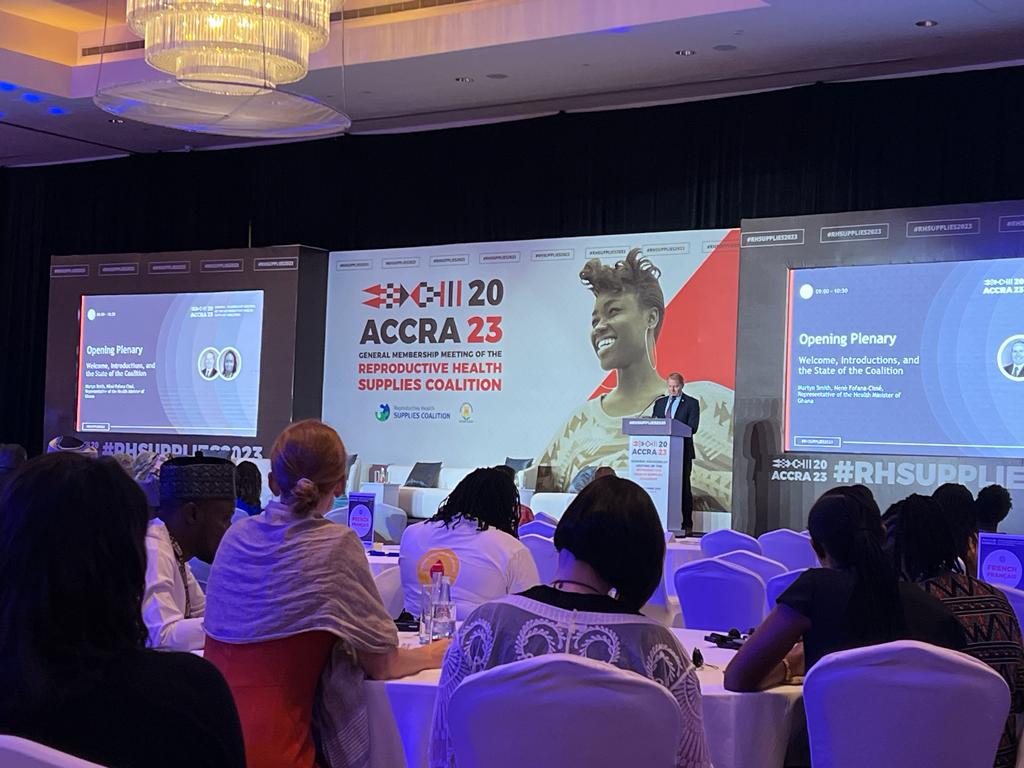
DfG and The Pad Project support many such decentralized Enterprises in numerous low- and middle-income countries, which bring parts of the menstrual product supply chain to the community’s doorstep. These Enterprises not only showcased resilience when commercial sanitary pads and products were unavailable during pandemic lockdowns but also increased access to menstrual products through their innovative approaches. Additionally, the Transform WASH model in Ethiopia, which focuses on partnerships with menstrual product manufacturers, leveraged existing supply chains to improve product availability and affordability in rural areas during the pandemic.
DfG’s panel presentation at RHSC’s General Member Meeting shared the barriers and successes of these hyper-local models and discussed how these models can be built upon. Hyper-local models have the ability to bring production, distribution and retail directly into communities, eliminating supply chain barriers and improving product and service accessibility to those who need it most.
You can learn more about DfG’s commitment to local leadership HERE.







